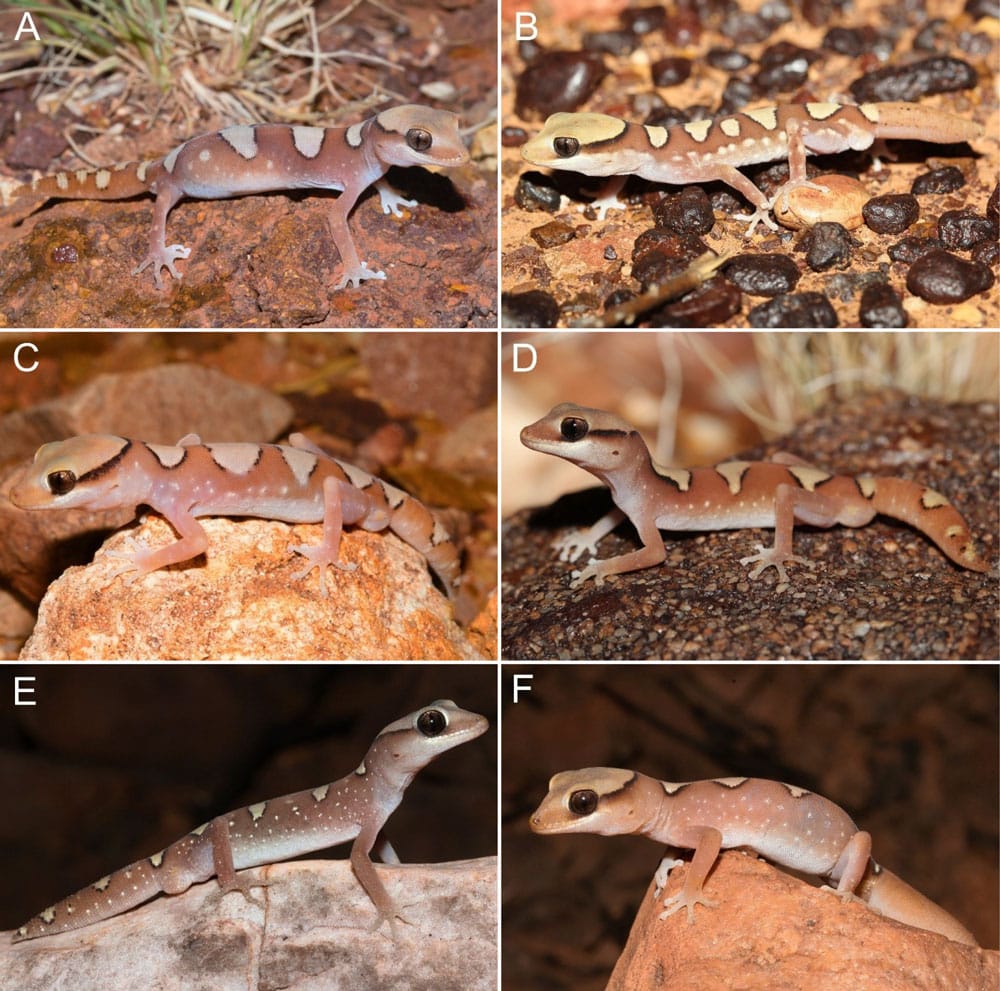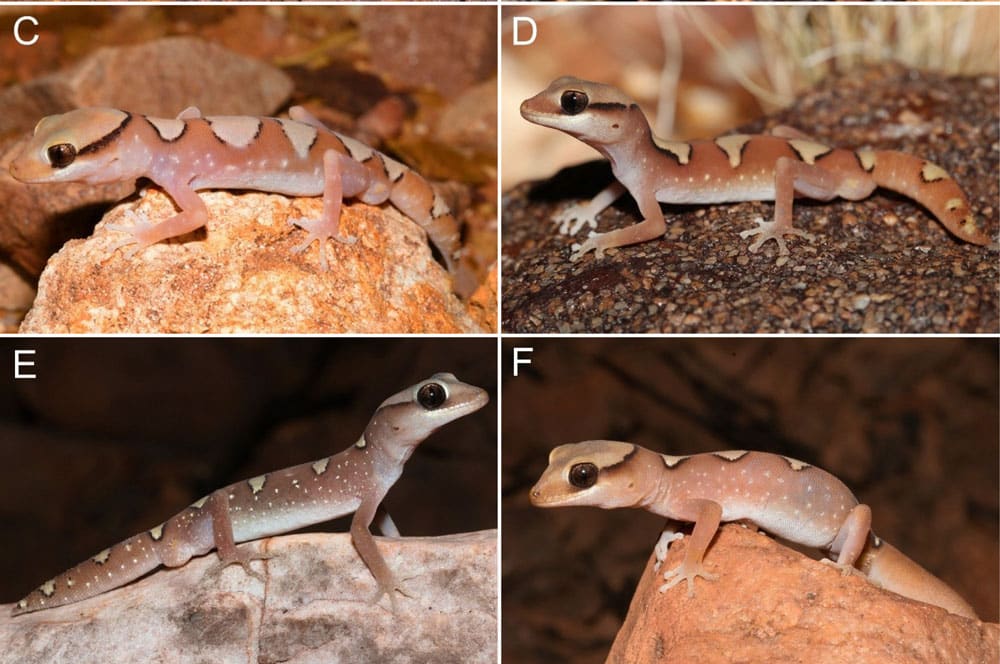They are a medium sized lizard reaching up to 56mm in length, have a robust build and a short and thick tail which is 44 to 60 percent of the snout to vent length.
Scientists conducting research on the Diplodactylus family of geckos in Australia have discovered two new species from the Diplodactylus galeatus species complex. Those lizards are the Fyfe’s mesa gecko (Diplodactylus fyfei) sp. nov, and the Tjoritja gecko (Diplodactylus tjoritjarinya sp. nov.)
Researchers with the Arid Zone Research Institute, the Flinders University in Adelaide, and Griffith University in Brisbane were studying Diplodactylus galeatus and how mountain ranges and biomes can create what the researchers call high levels of morphologically cryptic species diversity. The species is from an arid zone, terrestrial and can be found in areas of loose surface rock on the mountain ranges and the mesas.
In studying the region in which Diplodactylus galeatus (Southern mesa gecko) is known to exist, the researchers, through genetic analysis, describe the two new species. While D. galeatus lives in a drier area with less evapotranspiration (when water is moved directly to the air from bodies of water, the soil and forest canopies, and when evaporation occurs through the openings of plant leaves); D. tjoritjarinya is found in higher rainfall and evapotranspiration; D. fyfei is in a sort of middle ground between the two species, but in areas with less rainfall than where D. tjoritjarinya is known to inhabit.

Colour-pattern variation in the Diplodactylus galeatus species complex: A, B Diplodactylus galeatus from Coober Pedy, SA (P. McDonald, A. Fenner), C, D Diplodactylus fyfei sp. nov. from foothills of Mt Beddome on New Crown Station, NT (P. McDonald, A. Fenner); E, F D. tjoritjarinya sp. nov. from Tjoritja National Park, Northern Territory (P. McDonald).
Each of the three species are different from others in the Diplodactylus family. They are a medium-sized lizard reaching up to 56mm in length, have a robust build and a short and thick tail which is 44 to 60 percent of the snout to vent length. Another distinct feature from the other lizards in the Diplodactylus family are “the presence of a series of pale yellowish-brown, dark-edged dorsal blotches on the body and tail,” the researchers wrote in their paper.
Diplodactylus Geckos of Australia
The 20 Most Imperiled Australian Reptiles Predicted to Disappear By 2040
Diplodactylus tjoritjarinya also differs from Diplodactylus galeatus in that it has a larger ear opening, dorsal blotches, large white spots arranged in a mid lateral row of “portholes”, versus smaller white spots, and a dark red background coloration, while Diplodactylus galeatus is pinkish red, or red-brown. Diplodactylus fyfei differs from D. galeatus in that it has a larger rostral scale height and 20 other fixed differences.
The complete paper describing the lizards, “Vicars in the desert: Substrate specialisation and paleo-erosion underpin cryptic speciation in an Australian arid-zone lizard lineage (Diplodactylidae: Diplodactylus)” can be read on the Vertebrate Zoology website.



